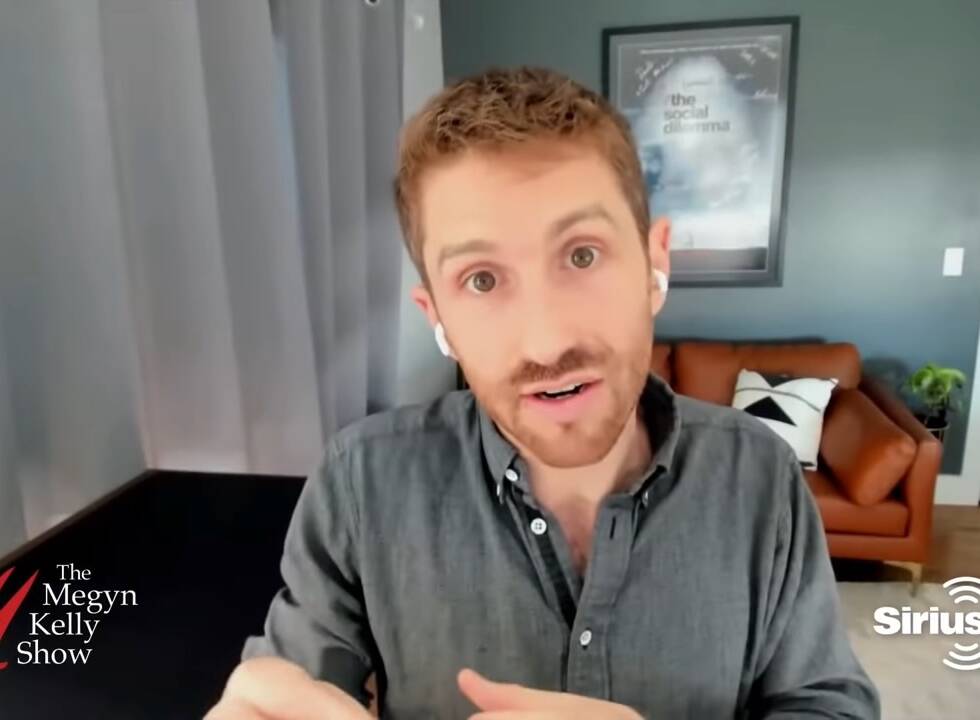It’s no secret that social media has done a good deal of damage to society. In the Netflix documentary The Social Dilemma, Tristan Harris – a Google design ethicist-turned-president and co-founder of the Center for Humane Technology – and other tech experts shined a frightening but necessary light on how Big Tech has manipulated and influenced the way we think about those around us and interact with one another. No user is immune to this, but it is especially worrisome for children.
On Thursday’s show, Harris joined Megyn to discuss some of the ways in which kids are being harmed by social media and the data that proves Big Tech companies know this is happening but are doing little – if anything – to address it.
Growing Up With Social Media
If you watched The Social Dilemma, you heard from an array of former tech executives who definitively stated that they do not allow their children to use the social media platforms they once worked for. Abroad, there are strict limits in China – where the juggernaut that is TikTok was developed – on screen time for kids. “They limit it to 40 minutes a day and only on the weekends,” Harris noted. “They have opening hours and closing hours – at 10pm, it just shuts off.”
That would lead one to wonder: What does China and these execs know that we don’t? “We’ve unleashed these unhealthy bombs on our children in our country and across the globe,” Megyn remarked. “But China has actually stepped in to try to stop that bomb from doing too much damage on its own children.” In her view, China does not want “a bunch of ‘missing the frontal lobe’ children to grow up addicted to technology.” Instead, “they want their kids to be smart, and to be the next generation leaders, and so on,” she continued.
In the United States, Megyn believes that “we’ve left our kids twisting on the vine.” She said there is no attempt “to protect our children in any way.” In fact, it’s the opposite. Big Tech seems to have a “the more addicted the better” mindset, she added. Harris agreed and said that he feels this can be a unifying issue for Americans. “Who wants our children systematically warped and deranged with comeback emails that – like a digital drug lord – when you stop using, figure out how to more aggressively get you to come back,” he asked.
While Facebook whistleblower Frances Haugen’s credibility has been called into question, Harris said she was simply leaking the company’s own documents. Internal research found that, among teens who reported suicidal thoughts, 13 percent of British users and 6 percent of American users traced their desire to kill themselves on Instagram. Additionally, the platform learned that it makes body image issues worse for one in three teenage girls. “I know personally some Instagram insiders who actually left the company after seeing that research because they couldn’t justify staying there knowing that that’s the case,” Harris shared.
As he sees it, there is no incentive to fix these issues because the “whole business model is designed around this kind of predation on our kids.”
The Business of Big Tech
While many conversations around Big Tech often focus on free speech, those discussions may actually be distracting from the larger problem. In the aftermath of Haugen’s leak, which showed that Facebook knew its platforms were divisive and polarizing, the company actually tried to accuse the whistleblower of being pro-censorship. “Whenever they talk about censorship, they do that because they know it just creates more division,” Harris said. “The conversation about free speech or censorship will never resolve.”
In Harris’ estimation, freedom of speech is essential on social media and the internet, yet there is more to it. Since one viral moment now has the ability to catapult someone to influencer status, Harris said the concept of “reach” and the “responsibility” that comes with it is crucial. “We’ve decoupled power and reach from responsibility,” he explained. “In the past, the greater the broadcasting capacity you would have, the more responsibility you would have because you’re reaching a larger people.” Today, “we have a single TikTok influencer,” he added.
He gave the example of a study that found a social media influencer in China can bring in one billion dollars in sales in one day because of the sheer volume of people they reach. ”This could be a 15 year old, or a 16 year old, or a Kardashian,” he noted. “In the twentieth century, we had like a few big celebrities that could do it, but we’re moving to a world where each tech company wants each of us to be a Kardashian.”
This is especially troublesome for children. In addition to “transforming the cultural basis for what our kids even want,” Harris said social networks are changing the social paradigm. “They want each of your kids to be the influencer – they want that to be the model for what being human and being a kid is about,” he explained. “That has an effect on the other kids, who say, ‘Well, [that person is] way more popular and successful, and getting the attention, and I want that attention.’”
Ultimately, “China is playing chess,” Harris concluded. “And we’re allowing these [Big Tech] business models to collapse our ability to think and act well in the twenty-first century.”
You can check out Megyn’s full show with Harris by tuning in to episode 244 on YouTube, Apple Podcasts, or wherever you like to listen. And don’t forget that you can catch The Megyn Kelly Show live on SiriusXM’s Triumph (channel 111) weekdays from 12pm to 2pm ET.


